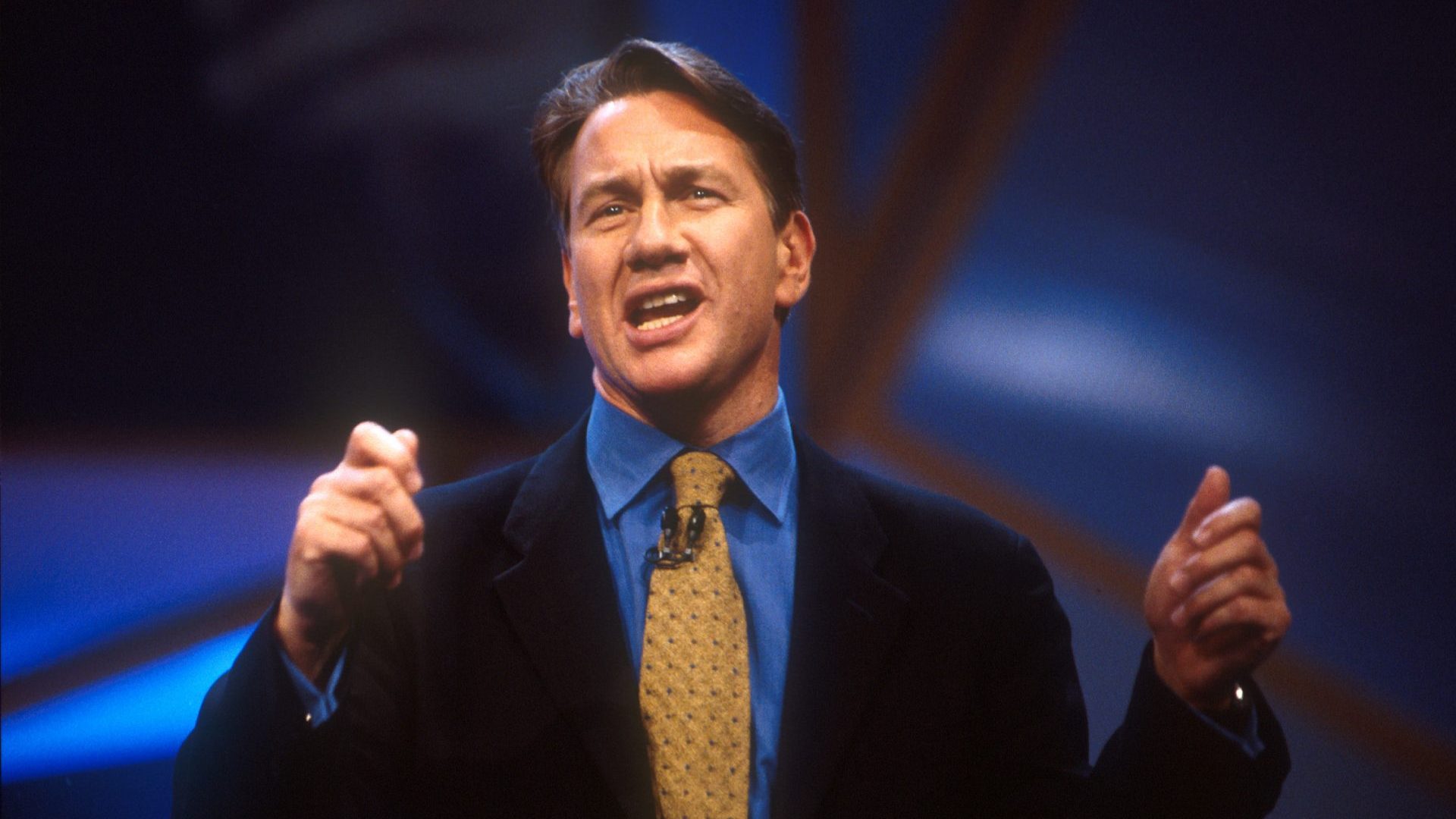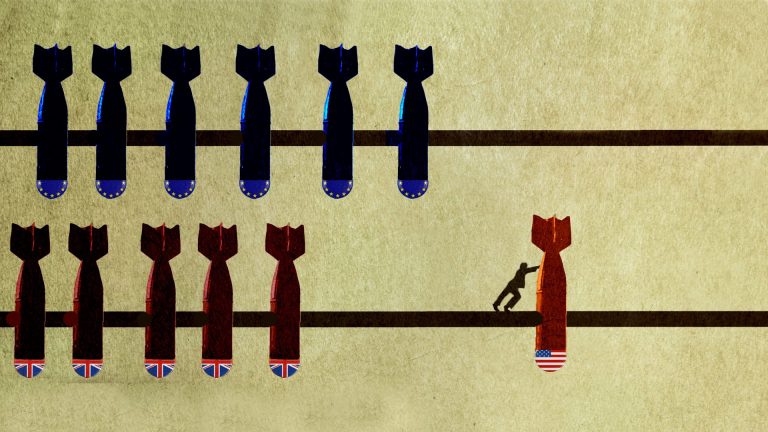“The Observer polled the constituency,” said Stephen, trying to remain calm. “We’re only four points behind Portillo.”
Silence in the room, campaign HQ, the front room of my one-bed flat. This changed everything. An unwinnable seat was suddenly on a knife edge. And this was no ordinary incumbent. This was the heir apparent of the Tory party; their next leader.
I think I said, “oh fuck”.
Stephen had been given a sneak peek of a poll out the next day. This was the Saturday before election day (May 1) 1997. Stephen Twigg was the candidate for Enfield Southgate. I was his campaign manager.
With us were the half dozen or so volunteers that gave up most weekends and often evenings to help promote the Labour party. My partner Belinda was there with our one-year-old and our friends Tim Leaver, now a Labour councillor who’s standing as an MP in North West Norfolk, and Joanne McCartney, now a London deputy mayor.
Stephen was an excellent candidate. Affable and erudite with a natural charm. His memory for people and details was superb. A ten-minute walk from my house to the pub could easily take half an hour as people stopped him to chat and wish him well.
We’d spent years quietly tramping the streets trying to build Stephen’s profile. He was very much a local boy, raised and schooled in the area. When people met him on their doorstep they were usually impressed.
The issue was that locals believed the constituency was Tory – Lib Dem – Labour, in that order. It wasn’t. Changes in demographics coupled with Blair’s popularity had pushed us up. Now we had to communicate this to the entire electorate.
This was pre social media of course. Even email was scant. Cellular communications were for City traders and show-offs on trains. I remember I had to put out a leaflet asking if someone could lend me a mobile phone for the last week of campaigning. Worse, as part of the Key Seat Strategy we had no budget and were basically forbidden to campaign.
We all decided: bollocks to that.
All parties employ key seat strategies; it’s obvious that you put your limited resources in your most marginal seats. But the mighty mechanisms of large political machines can struggle with rapidly changing landscapes. In Enfield Southgate, we needed to find a new gear.
We quickly decided on a simple leaflet for mass distribution; a classic squeeze message. I put it together on my Mac there and then.
“If you want Portillo out, only a Labour vote will count.” It didn’t rhyme and it was a little clumsy but we didn’t have time to focus-group it. We didn’t have a focus group either.
In five days we distributed maybe 40,000 leaflets. Just publishing them was a full-time task. Rush jobs with printers all over London and some illicit photocopying.
Help arrived. Once the poll was published, the whole world descended on us. Literally. Volunteers arrived from all over the country. One guy appeared at my front door, with his suitcase, straight from the airport. “I’ve come from South Africa. What can I do?”
That week was one of the most exhausting of my life. I slept maybe three hours a night. I’d charted a week of activity on a 15-minute grid and the slots were filling up.
We started badly. Tim, who was driving our campaign vehicle (his dad’s old Land Rover) thought we’d need water and Mars bars so popped into Safeways… for about 15 minutes. We had a stand-up row outside the supermarket. Danish TV news were waiting in Green Lanes! Luckily there were no mobile phones to video such antics.
That Land Rover featured some home-made branding. Tim and I had rigged sandwich boards on the roof and over time I had pieced together large VOTE TWIGG banners out of dozens of individual A3 colour prints from my workplace, mosaic-like – a few each day to avoid detection. It was to be my home for a week.
The press, local, national and soon after, international, picked up the story. Too good to be true, surely?
None of us would talk about it; we felt fragile. If we made words of our thoughts, if we even whispered it too loudly, something might shatter. Stephen flatly refused to write a victory speech. Fate was not to be tempted.
Increasingly I thought it was possible. The atmosphere during canvassing was party-like. People would chase us for posters and to wish us well. I made a bet with one of Portillo’s aides: £100 that we would get within 1,000 votes. A bet he reneged on.
We regularly had young apparatchiks from Millbank Labour election HQ turning up. I walked into my bedroom for a change of shirt to find Judith Church MP sat on the floor with my one-year-old. She’d looked at Belinda, frantic in the room, and just offered to babysit for the afternoon.
On election day itself, three young Millbank men appeared at our flat in the regulation grey suit, trainers and backpack. “We’ll do anything. Don’t tell Mandy (Mandelson) we’re here!” they joked. I thrust a bag of leaflets into their hands.
“Asda in Southgate please.” They nodded and left. I remember Tim staring at me. “What?” “Do you know who they were?” “Should I?” “Ed and David Miliband and Ed Balls.”
Rising stars, apparently. I shrugged. “I hope they’re good at leafleting.” They were excellent.
At the count, the bundles of votes were laid out on long trestle tables. Two for each candidate. I’d asked the returning officer if the votes had been counted by ward. They hadn’t. The slips were all mixed. Stephen’s votes had just edged over onto the second trestle.
I pulled him over. “Look! These are randomised. You’ve hit the second table first.”
“No!” He went pale. “Yes. You’d better write that speech.”
He won. You may have seen it on the telly. I was especially pleased to see the LibDem vote had collapsed.
Incidentally, the candidates all know the result before they take the stage/podium. Sorry if that ruins the drama.
With us, the returning officer first read the numbers in a small huddle of candidates and agents. Then said “Right. Everyone happy?” Portillo replied, “Oh, ecstatic.”
After the win and the media interviews, high on adrenaline and joy, Stephen declared that he had decided we had to go to Labour’s victory party at the Royal Festival Hall. Off we went in the Land Rover.
Because I hadn’t seen the media reaction to the win, I assumed wrongly that we were still fairly anonymous. I was wrong.
A movie moment was to follow. This is all true, I assure you.
Blair had given his speech outside the hall on the banks of the Thames as we were barrelling into town. Those thousands of people were now thronging across Waterloo Bridge.
As the sun came up over the river, to the sounds of Blair’s “new dawn”, with the Big Ben clock face glinting behind us, our Land Rover hit the bridge. The crowds saw us. A roar went up. They recognised the name.
We had to stop as they poured towards and around us, hands thrust in for shaking. “Well done mate! My favourite moment.”
And mine.









